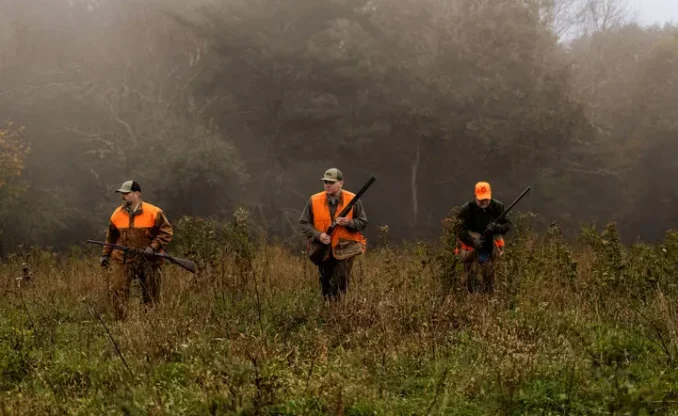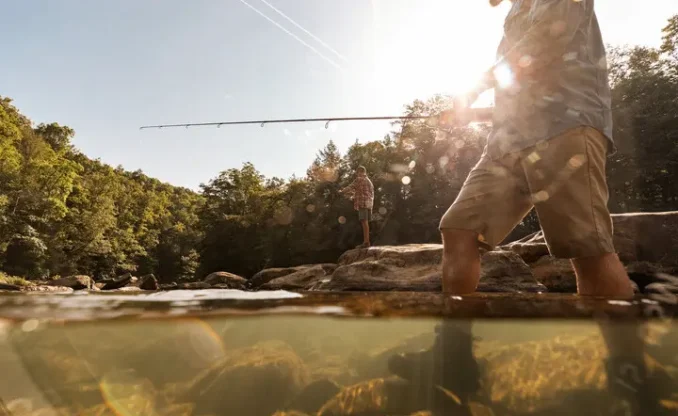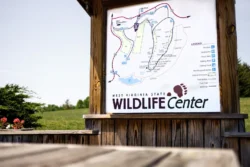Navigate West Virginia’s rivers and lakes with these safe boating basics
Are warm breezes and glistening sunlight beckoning you to get out on the water? With more than 2,000 miles of navigable streams and dozens of boatable lakes and impoundments, there are few places better than West Virginia to embark on boating adventures in the summer.
But before you rev up your engine, it’s crucial to make sure you know how to operate a boat and navigate the waters safely.
West Virginia might have a long list of boating rules and regulations to remember, but don’t worry. The boating experts at the West Virginia Division of Natural Resources’ Law Enforcement Section have helped us prepare this guide to steer you through the basics of boating safety.
Let’s dive in and explore boating safety basics that ensure safe voyages on the water.

Boating Safety Overview
Boating safety encompasses practices and precautions that ensure the wellbeing of individuals and vessels while navigating waterways.
While boating safety involves preventing accidents and responding to emergencies, it also requires you to adhere to many rules and regulations and know how to utilize different kinds of equipment. With that in mind, we find it helpful to categorize the boating safety basics by three basic principles:
- Being Prepared
- Being Responsible
- Being Aware
Safe boating involves actions such as wearing life jackets, maintaining a sober operator, adhering to speed limits, being aware of weather conditions and potential hazards, such as rocks or submerged objects, and adhering to navigational rules. Unsafe boating, on the other hand, disregards these principles, putting lives and property at risk.
With our definition and categories in mind, let’s chart a course through basic boating rules and regulations to get you ready for safe and enjoyable boating experiences.

Be Prepared
When it comes to boating safety, think of preparation as the anchor that keeps your boat steady. Here are a few basics all boaters need to know in order to be prepared.
- Before heading out on the water, check the weather forecast and water conditions. Avoid boating in inclement weather or hazardous conditions.
- Inform someone reliable about your boating plans, including your intended route and estimated return time. This ensures that someone knows where to find you in case of an emergency.
- Ensure your vessel is equipped with all necessary safety equipment, such as life jackets, flares, fire extinguisher, and navigation lights. Regularly check and maintain this equipment to ensure it is in working condition.
Be Responsible
When it comes to boating safety, think of responsibility as the helm that steers your boating journey. Here are a few basics all boaters need to know in order to be responsible.
- Never operate a boat under the influence of alcohol or drugs. Designate a sober operator or arrange alternative transportation if alcohol will be consumed.
- Drive at a safe speed, especially in crowded or unfamiliar waters. Be mindful of No Wake Zones and the wake (also known as wave) your motorboat is producing and adjust your speed according to conditions such as visibility, traffic, and obstacles.
- Maintain proper seating within the boat and avoid sitting on the edge, which can destabilize the vessel. If standing, do so carefully and away from the sides to maintain balance.

Be Aware
When it comes to boating safety, think of awareness as the compass that guides you safely home. Here are a few basics all boaters need to know in order to be aware.
- Pay attention to the limits of your boat and avoid overloading passengers and gear, as this can affect stability and increase the risk of capsizing or swamping.
- Use navigation lights at night and keep a lookout for other boats. Adhere to the rules of navigation and give way to vessels as required. Stay aware of your surroundings to avoid collisions.
- Stay informed about potential hazards and be able to spot signs of approaching thunderstorms. If caught in a storm, take appropriate precautions such as securing fishing gear, staying low in the boat and navigating waves at a slight angle for stability.
Sign up for a boater safety course today
We hope this guide has helped you realize that boating safety isn’t simply a list of dos and don’ts but a mindset and that you are encouraged to embark on boating adventures of your own.
But before you operate a motorboat in West Virginia, make sure you have completed one of our Boater Education Courses, which are required for boaters born on or after December 31, 1986. To find a free class near you, visit WVdnr.gov/boater-education.




